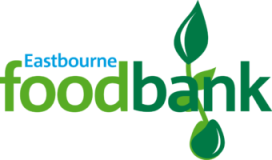December 2020
Technical and Client Update
In this issue
Is your business ready for Brexit?
No Autumn Budget but more tax updates released
Government spending review
Tax Investigation Service
Coronavirus Hub
Local charity support
Christmas opening hours
Is your business ready for Brexit?
The UK left the European Union on 31 January 2020. The transition period ends on 31 December 2020.
The Covid-19 pandemic has dominated the news headlines this year but Brexit is still progressing. During the transition period, the UK remains in both the EU customs union and single market. Until the end of the transition period (31 December this year), most things stay pretty much the same. So, what do businesses need to think about in terms of UK-EU trade, supply chains, etc. from 1st January?
Brexit could affect your business in a number of ways. For example, businesses that import or export goods between the UK and the EU will need to consider what operational changes they will need to make in advance of January 1st. The UK Government has set up a helpful webpage which includes useful guides and checklists https://www.gov.uk/transition
A new customs regime will come into force on 1 January 2021. Hopefully a trade deal can be agreed by then, as the final arrangements are still not clear.
UK businesses that trade with countries outside the European Union will already be familiar with an Economic Operation Registration Identification (EORI) number. From 1 January, British companies will not be able to trade with the EU without an EORI. In the absence of an EORI number, goods could be held up at ports.
In addition, non-compliant businesses won’t be able to take advantage of any special measures such as deferred tariff payments that look set to be introduced to smooth the flow of trade.
Another consideration for businesses is taxation. HMRC offers guidance on its website for the future treatment of payments between UK companies and EU member states. As ever, tax can be a complicated subject and it is often best to invest in some tax advice from an expert.
Finally, businesses that trade with the EU may need to consider any additional regulatory obligations that come about as a result of Brexit. As things currently stand, there are a lot of unanswered questions as we still don’t know if a last-minute trade deal will be agreed between the UK and the EU. Either way, it’s worth keeping an eye on the gov.uk website for any additional guidance or updates.
We have put together a Brexit Newsletter with more information and useful links, please click here to view. Please note that the situation is fast moving and information is constantly changing.
No Autumn Budget but more tax updates released
More than a dozen tax announcements were announced in a written parliamentary statement on 12 November. We have detailed the relevant points below.
Annual Investment Allowance £1 million temporary cap will be extended until 1 January 2022.
A £1 million tax break to stimulate investment in UK manufacturing, to support business confidence, is to be extended, HM Treasury has announced.
Businesses, including manufacturing firms, can continue to claim up to £1 million in same-year tax relief through the Annual Investment Allowance (AIA) for capital investments in plant and machinery assets until 1 January 2022. The extension of the temporary £1 million cap was originally due to revert to £200,000 on 1 January 2021.
This move is intended to boost confidence as companies look to weather the pandemic and plan for the future. Further information can be found here.
MTD for corporation tax
The consultation for MTD for corporation tax opens on 5 March 2021. In the meantime, all you need to know is:
- MTD for CT will apply to ALL entities that pay corporation tax, with no minimum turnover threshold.
- Quarterly reports summarising income and expenses will be required.
- A pilot will start in 2024.
- MTD for CT will be compulsory from 2026, but possibly later.
- HMRC will not provide free software for MTD filing.
R&D tax credit PAYE cap
The cap on the amount of payable R&D credits, linked to the amount of PAYE and NIC payable by a small company, was removed in 2012. But in 2018 Chancellor Philip Hammond announced he would reintroduce a cap, after consultations which stretched into 2020.
The government has now decided the R&D tax credit cap will be £20,000 per period plus 300% of the PAYE and NIC payable for the period. This will take effect for periods starting on and after 1 April 2021.
Reforming the CIS
The government will legislate to provide for:
- a power to enable HMRC to amend the effect of certain Construction Industry Scheme (CIS) deduction claims on employer returns
- changes to the current rules on the cost of materials and deemed contractors
- expansion of the scope of the Construction Industry Scheme false registration penalty
The government will continue to consider the shape of any future supply chain measures in light of the information received from this consultation, as well as other changes to the Construction Industry Scheme to protect against fraud and abuse. You can read the draft legislation, an explanatory note and a tax information and impact note (TIIN).
The VAT domestic reverse charge commences on 1 March, also these new CIS rules and the off-payroll regime for the private sector both start on 6 April.
Government spending review
In his spending review on 25 November 2020 Rishi Sunak said the "economic emergency" caused by Covid-19 has only just begun, as he warned the virus would mean lasting damage to growth and jobs.
Official forecasts now predict the biggest economic decline in 300 years.
The UK economy is expected to shrink by 11.3% this year and not return to its pre-Covid size until the end of 2022. Government borrowing will rise to its highest outside of wartime to deal with the economic impact.
The Office for Budget Responsibility (OBR) expects the number of unemployed people to increase up to 2.6 million by the middle of next year.
This means the unemployment rate will hit 7.5%, its highest level since the financial crisis in 2009.
Amongst other announcements made yesterday, the minimum wage - which has been rebranded as the National Living Wage - will increase by 2.2% - or 19p - to £8.91 an hour, with the rate extended to those aged 23 and over. Other rates were also increased. From April 2021, 16 and 17-year-olds will see their pay go up to £4.62 per hour, from £4.55 today.
The chancellor also announced a £4.3bn package of support to help the jobless get back into work.
So what does the spending review mean for businesses?
Clearly the situation is unprecedented in peace time. The size of the cost of Covid-19 is huge and the Government will need to find more money from spending cuts and taxes just to balance revenues on a day to day basis.
So businesses can expect to see tax rises announced in the March 2021 budget.
There is already speculation that the government could raise money from changes to Capital Gains Tax, pensions relief or self-employment taxes. However this will not be sufficient to cover the Covid-19 costs so we predict there will be some corporation tax, income tax, VAT or national insurance increases.
The big decision for the government will be to decide when to stop the support to the recovering economy - and when to start strengthening public finances by tax rises. The extreme uncertainty underlines how difficult that decision could be.
Businesses should strengthen their cash flow management now ahead of the end of supports and tax changes.
The most important advice we can give our clients is to take some time to plan ahead to look at maximising revenue and minimising or streamlining operating costs. We can provide you with templates and forecasts to do this or we can help you prepare accurate forecasts based on a number of scenarios and do a “what if” exercise on your business.
Please talk to us about how we can help you make it through the next few months and preparing for recovery.
Tax Investigation Service
Time consuming and expensive HMRC tax investigations are on the increase, any individual or organisation is at risk of an investigation even if you have done nothing wrong.
£35 billion is the estimated ‘tax gap’ between the amount HM Revenue & Customs (HMRC) should collect and the amount actually collected, and over half of this is attributed to small businesses and individuals. Due to sustained efforts to tackle non-compliance, there has been a long-term reduction in the overall tax gap, from 7.2% in 2005-06 to 4.7% in the tax year 2018-19, its lowest recorded rate.
Tax investigations continue to represent the main method HMRC employs to reduce this deficit. Some are launched at random, whilst others are targeted towards specific business sectors. Either way, we have noticed a continue increase in activity as their computer systems become more extensive and sophisticated. All taxpayers are at risk.
Humphrey & Co has offered a Tax Investigation Service (TIS) to our clients for several years now, and we invite all our clients to share in the protection offered. Tax investigations can be costly. Investing a small amount into our Tax Investigation Service now means that you will receive complete support if HMRC targets you, at no additional expense.
We believe that we know you and your business best and we want to be there for you when you need us most. We will manage your case from start to finish, reducing stress and providing peace of mind.
Please visit our website for further information on the Tax Investigation Service and how it can protect you.
Coronavirus Hub
We continue to keep our clients and contacts updated via our Coronavirus Hub with the information issued by the Government to support businesses and individuals. We will continue to update the hub with the latest developments so please check back regularly. Alternatively, you can follow us on our social media channels below:
Local charity support
During 2020 we have supported The Eastbourne Foodbank and Hangleton & West Blatchington Food Bank and are very appreciative to all members of our staff who have helped to raise money for these very worthy causes. Due to the Coronavirus Pandemic we were not able to fundraise as we would have liked so we have decided to support both Food Banks for another year.
In the run up to Christmas staff took part in some Christmas fundraising which included a Christmas quiz, a raffle and Christmas Jumper Day. All prizes were sourced from small local business and we raised £312 Which means the total raised in 2020 is £2,265. Please click here to read about the Christmas fundraising and the local Businesses we supported.
The Eastbourne Foodbank and Hangleton & West Blatchington Food Bank are local to our offices in Eastbourne and Hove. Food Banks are here to support those in the local community who do not have sufficient funds to buy their own food and essential toiletries, whilst also offering advice and support groups to those in need.
We will be supporting both charities by collecting food to donate throughout the year and also donating the money raised through various fundraising activities. Our first donation will be £500 to each charity.
For more information visit:
www.eastbourne.foodbank.org.uk and www.hangletonfoodbank.org
We will update you on the funds raised during 2021 in future news updates.

